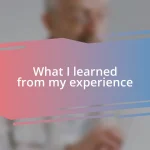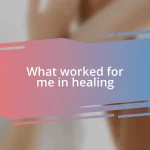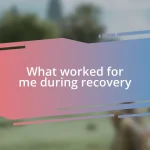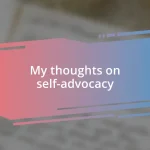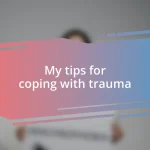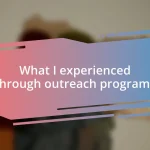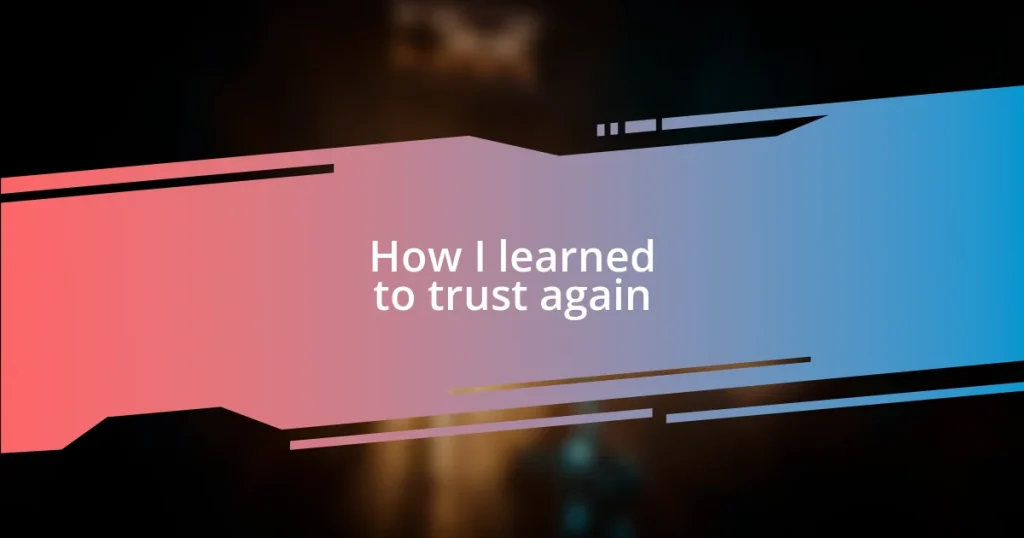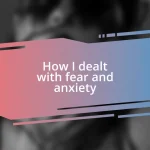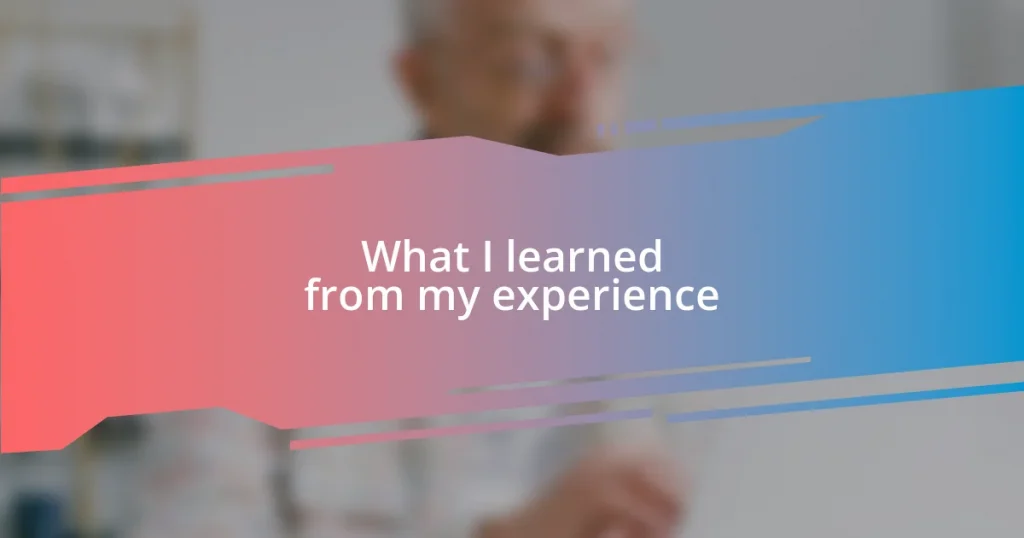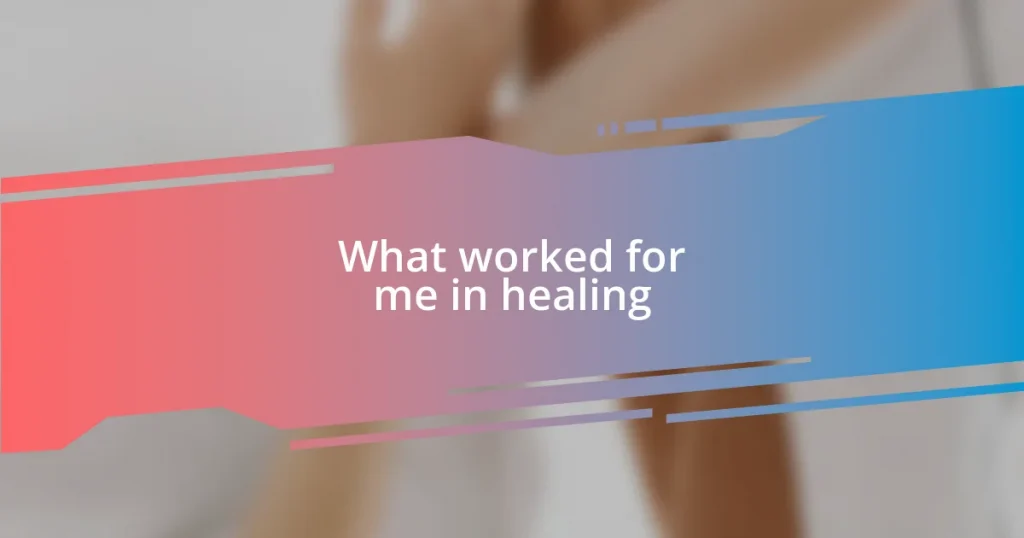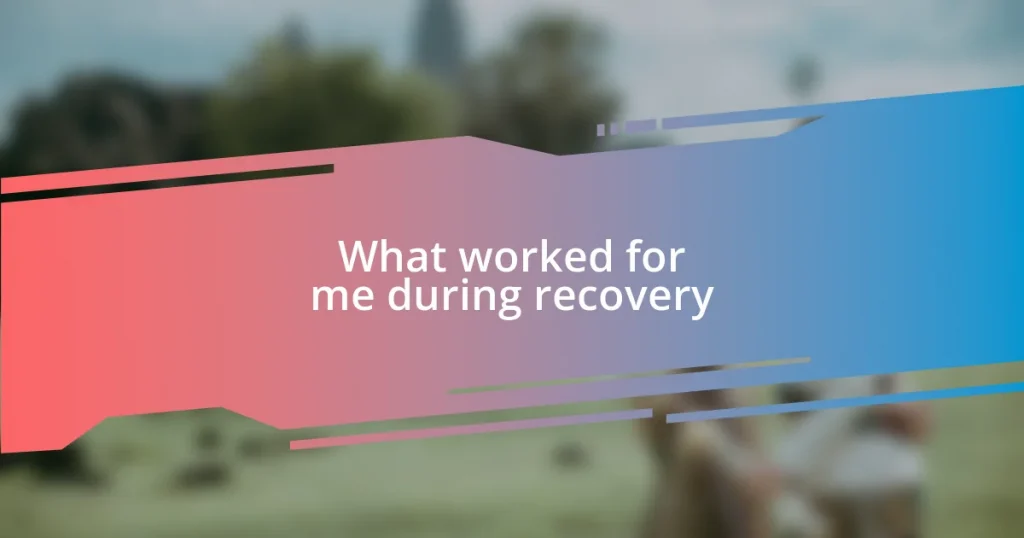Key takeaways:
- Trust is built over time through vulnerability and understanding; it requires recognizing past betrayals to rebuild connections.
- Practicing self-compassion and forgiveness is essential for healing emotional wounds, allowing for deeper relationships and trust to form.
- Establishing communication and boundaries fosters respect, while nurturing trust involves consistent effort, empathy, and celebrating each other’s successes.
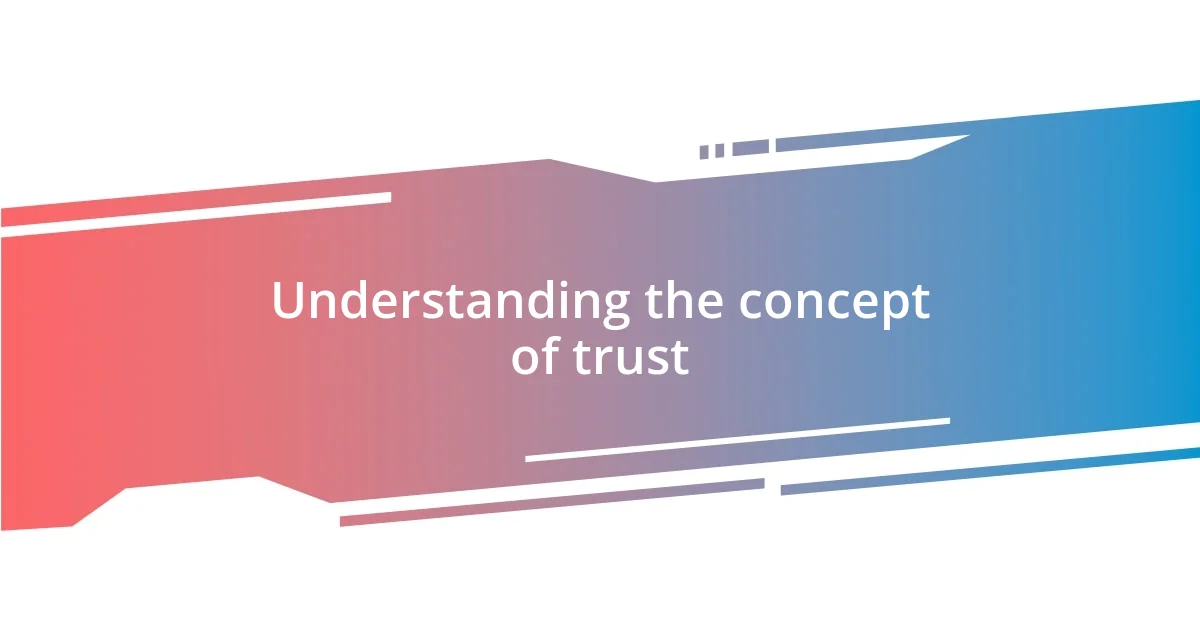
Understanding the concept of trust
Trust is a delicate balance, built over time but can shatter in an instant. I remember a friendship I cherished completely falling apart when I learned my confidences had been shared. It left me wondering—how do we decide who deserves our trust?
At its core, trust involves vulnerability and the belief that someone will act with integrity. I’ve often pondered why I trusted some individuals more than others, even when my experiences suggested caution. This selective trust can feel both empowering and terrifying—like I’m handing over pieces of my heart and expecting them to safeguard it.
When I reflect on trust, I realize it’s a dance between hope and fear. Each interaction creates layers; a kind word builds confidence, while a betrayal chips away at it. Have you ever felt that thrill of opening up to someone new, only to be met with disappointment? That’s trust, an intricate web we weave as we seek connection in a sometimes unpredictable world.
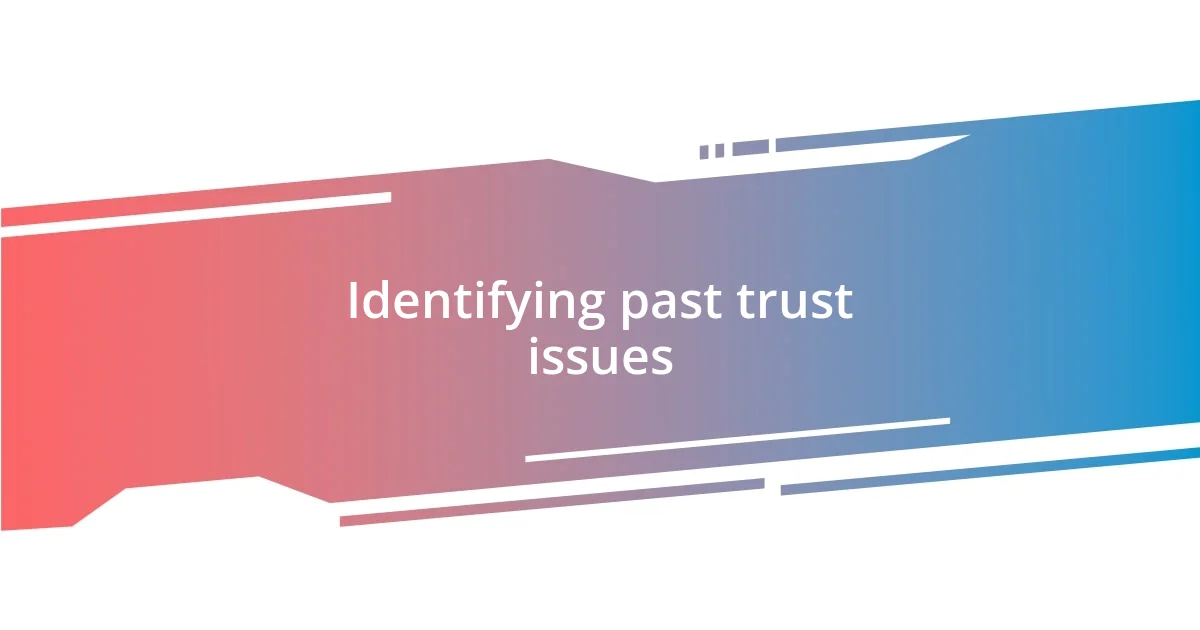
Identifying past trust issues
Identifying past trust issues can often feel like peeling back layers of an onion, revealing experiences that shaped our perceptions. I vividly recall a time in my early twenties when I confided in a colleague about a challenging personal situation, only to overhear them divulging my story to others later. That betrayal stung deeply and made me question not just my judgment, but also my ability to trust again.
To pinpoint trust issues from our past, it helps to reflect on specific moments and patterns. Here are a few questions to consider:
- What experiences have led you to distrust others?
- Are there recurring themes in your relationships that suggest a pattern of betrayal?
- How did those betrayals affect your ability to connect with new people?
- Have you ever found yourself doubting intentions even when there’s no evidence to breach trust?
By taking the time to answer these questions, I began to understand the roots of my hesitations and grow from my previous experiences, embarking on a journey toward rebuilding trust.
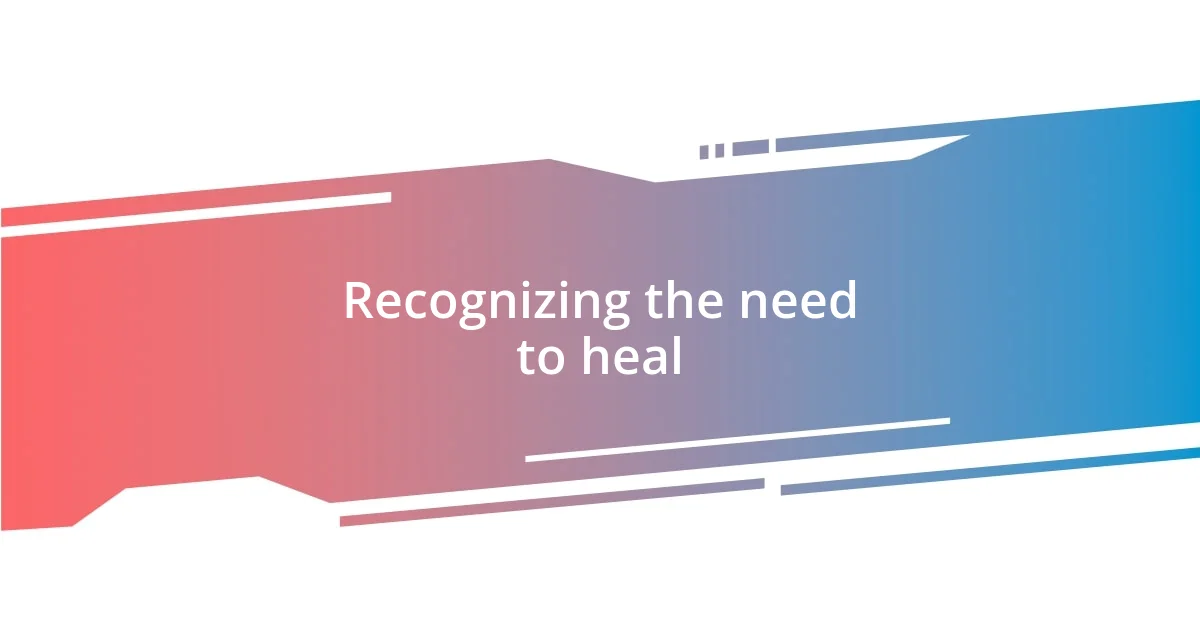
Recognizing the need to heal
Recognizing the need to heal often starts with a sense of discomfort in your relationships. I recall a period when I felt a constant knot in my stomach whenever I opened up. That nagging feeling signaled a deeper issue, urging me to confront the emotional scars I was trying to ignore. Have you ever felt that? It’s like your heart whispers that something isn’t quite right, compelling you to dig deeper.
As I navigated through my feelings, I began noticing patterns—moments when my trust was challenged. I’d find myself pushing people away, constantly weighing every word they said. This self-preservation instinct was exhausting. Embracing the need to heal meant recognizing that I wasn’t just avoiding pain; I was missing out on potential connections. When I finally acknowledged this, I felt a flicker of hope amidst the shadows of my past.
Healing is not a linear journey, and understanding your need for healing takes time. I remember journal entries where I poured out my fears and frustrations. The act of writing became a cathartic release, allowing me to face my emotions head-on. Through this process, I realized that admitting my wounds was the first step toward opening up again. It’s okay to feel lost at times; that’s simply a part of the healing journey that leads toward rebuilding trust.
| Indicators of Need for Healing | Personal Reflections |
|---|---|
| Constant discomfort in relationships | Feeling a knot in my stomach when opening up |
| Patterns of pushing people away | Exhaustion from self-preservation |
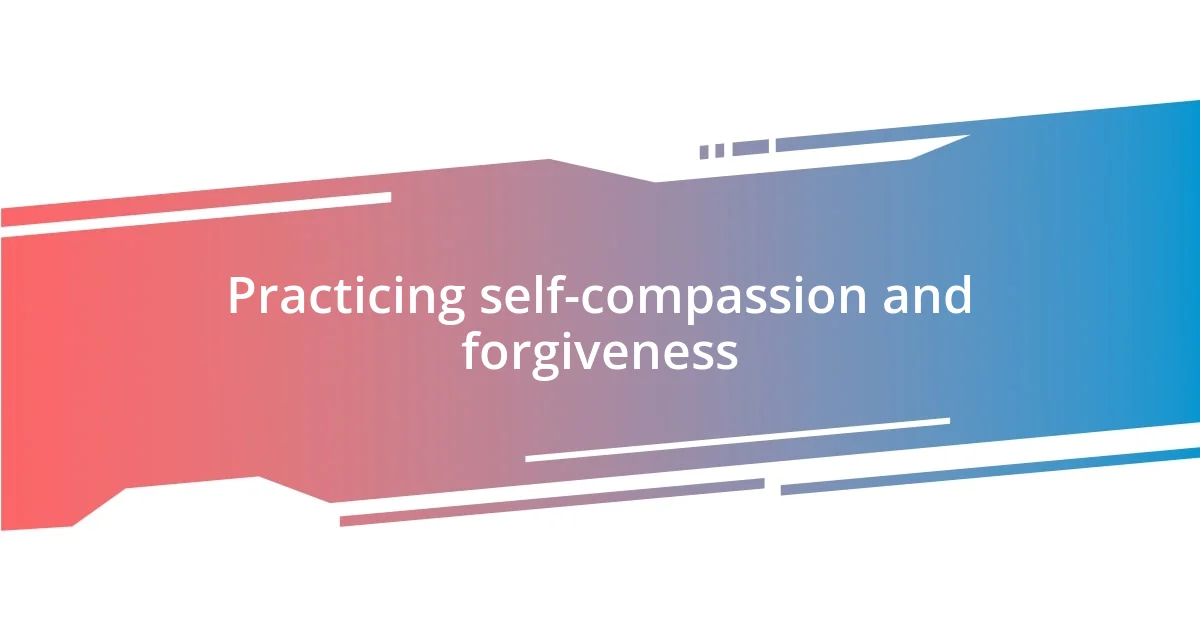
Practicing self-compassion and forgiveness
Practicing self-compassion was a turning point for me. I recall sitting on my bed one evening, feeling awful about a mistake I’d made that day. Instead of criticizing myself, I took a deep breath and remembered that everyone stumbles. I whispered to myself, “It’s okay; you’re human,” and in that moment, I felt the weight of guilt lift. Have you ever tried speaking to yourself as you would to a dear friend? It’s incredibly liberating.
Forgiveness, both for myself and those who hurt me, came gradually. There was a pivotal moment when I found myself reflecting on an old friendship that had ended painfully. I let feelings of anger swirl around me for too long, but ultimately, I realized that holding onto resentment was like carrying an anchor. I began to write letters, even if I never sent them, expressing my feelings and letting go. This small act was freeing; forgiving didn’t mean condoning their actions, but rather, it released me from the shackles of bitterness.
In my journey, I learned that self-compassion and forgiveness are intertwined. When I started to give myself grace, it became easier to extend that compassion to others. I’ve found that understanding my own imperfections made it simpler to accept others’. Have you experienced this shift? If we can embrace our flaws, we can start to foster deeper connections and rebuild trust without the cloud of past hurts distorting our view.
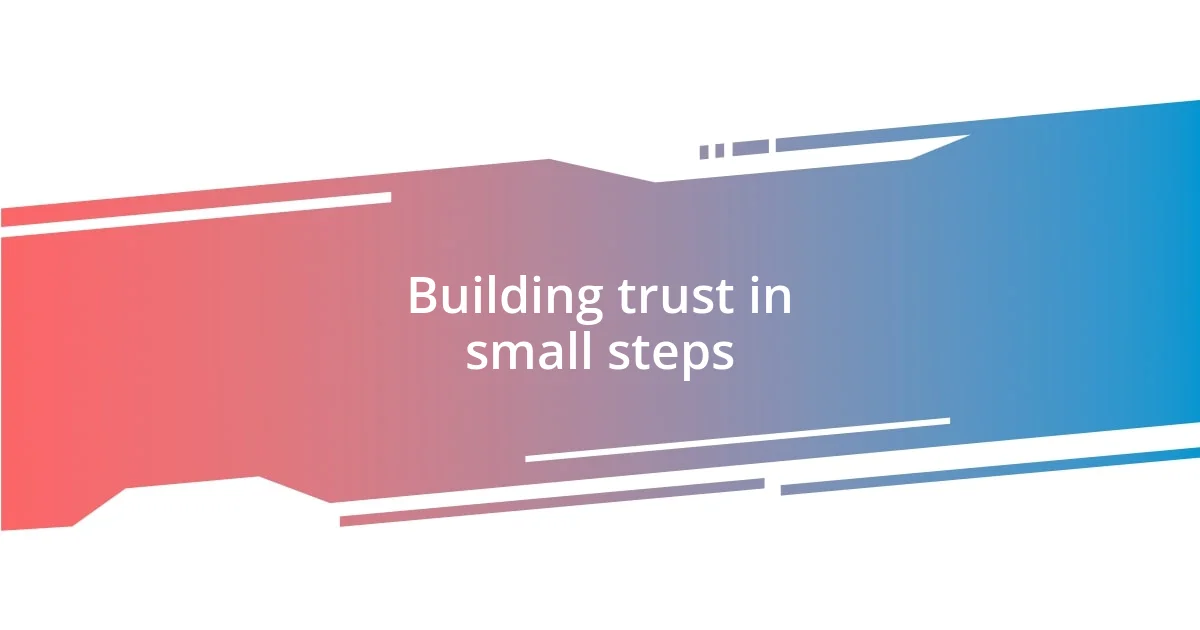
Building trust in small steps
Building trust again is all about taking small, manageable steps. I remember when I decided to open up to a close friend after a rough patch in my life. Instead of diving deep into my fears right away, I shared a little at a time—a simple thought, a light vulnerability. Each time I did, I felt a weight lift, realizing that trust doesn’t have to be an all-or-nothing deal. Have you tried this approach? It can truly transform how you relate to others.
Sometimes, I found that the little things made a big difference. I started giving myself permission to be open about my feelings, even in casual conversations. Sharing a small worry or insecurity made me feel more connected. It was almost like testing the waters—knowing that if I could trust this friend with something minor, I could eventually reveal more significant aspects of myself. Did you ever notice how these tiny revelations can build a foundation over time?
I also learned that building trust involves responding to others’ small gestures of vulnerability. When a colleague confided in me about their struggles, I took that as an invitation to share back. It’s a beautiful cycle: the more we express even our smallest fears, the more others feel encouraged to do the same. This creates an environment where mutual trust can flourish. Have you experienced a moment where sharing opened up a whole new level of connection? I believe these tiny steps toward openness pave the way for richer relationships.
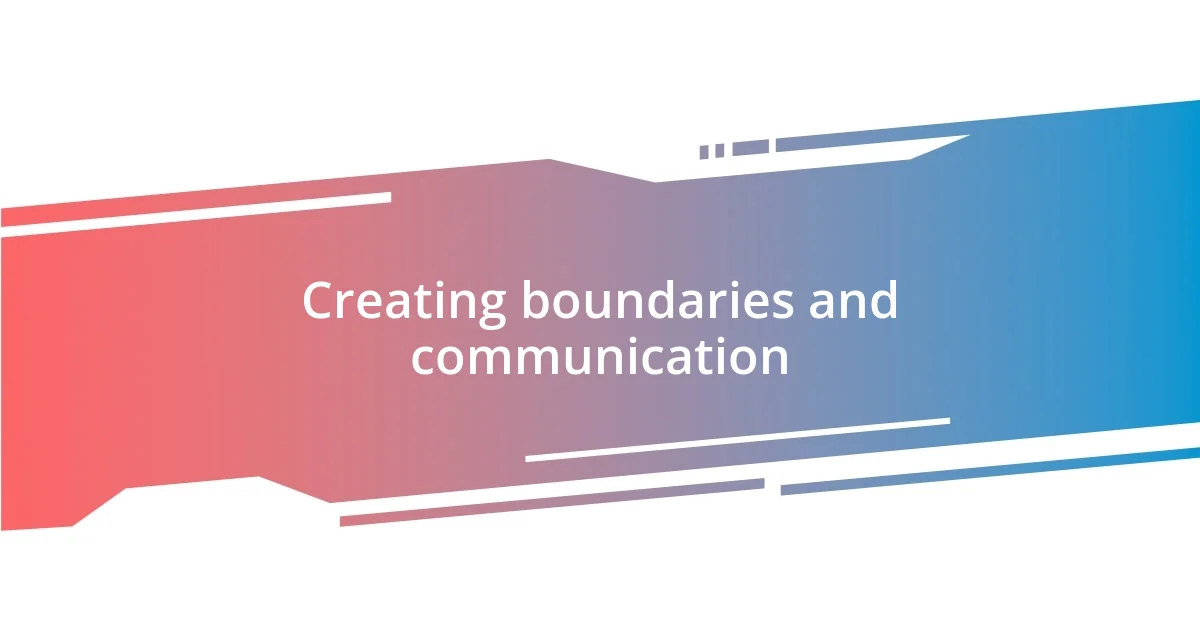
Creating boundaries and communication
Creating boundaries was a significant aspect of my journey toward rebuilding trust. I vividly remember a time when I felt overwhelmed by others’ expectations, which left me feeling exposed and vulnerable. I decided to communicate my needs clearly, stating what I was comfortable with and what I wasn’t. It felt daunting at first, but establishing those limits not only protected me but also fostered respect in my relationships. Have you ever felt the weight lift after asserting your boundaries? It’s empowering.
Effective communication became my anchor. I found that being direct about my feelings, especially during tough conversations, helped mitigate misunderstandings. There was one instance when a misunderstanding with a family member left me feeling hurt. Instead of burying it, I chose to express how their words affected me. Surprisingly, they hadn’t realized the impact their actions had on me and were grateful for the opportunity to address it. This experience taught me that openness can clear the air, making way for deeper connections. Have you tried speaking up about what truly bothers you? It could change everything.
I also discovered that active listening plays a crucial role in setting boundaries and communicating effectively. When I became genuinely attuned to what others were saying, it opened doors to honest dialogue. I recall having a conversation with a colleague who was sharing their struggles at work. By allowing them space to express themselves without interruption, I not only learned about their challenges but was also able to share my own in return. This mutual exchange of vulnerability created a safe space, reinforcing the importance of listening as a foundation for trust. How often do you take the time to really listen? It’s a small act that can lead to profound changes in our relationships.
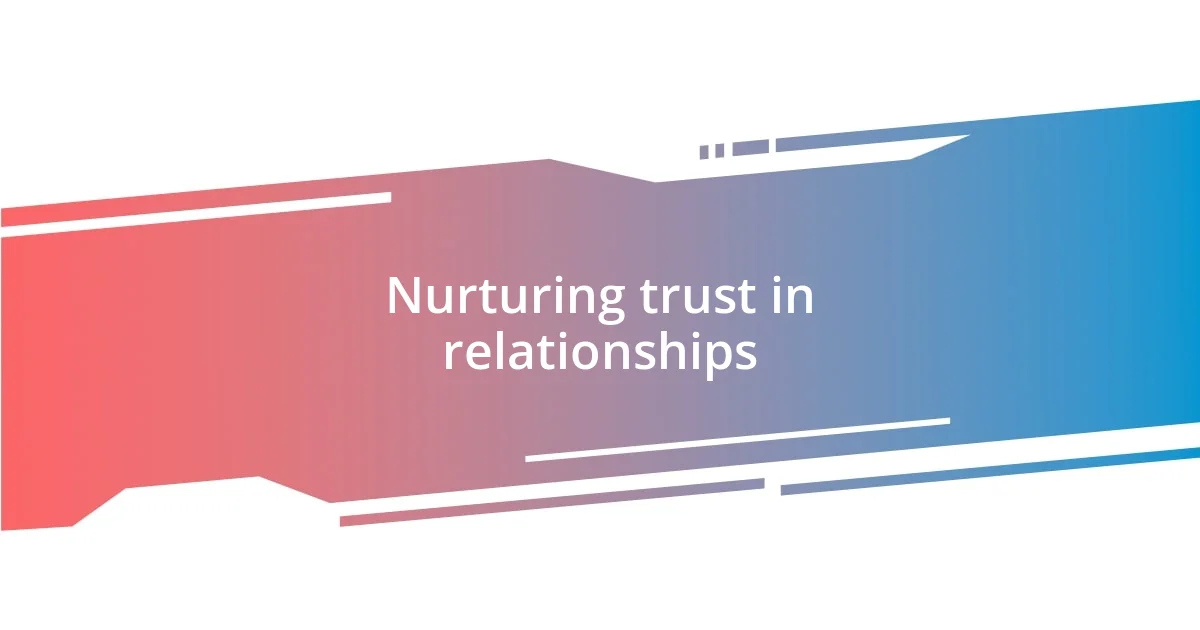
Nurturing trust in relationships
Nurturing trust in relationships requires consistent effort and empathy. I recall a time when I made a conscious decision to check in on a friend regularly. Sending a simple text to ask how their day was felt like such a small act, yet it deepened our bond. It reinforced the idea that trust grows not just from big gestures but from showing genuine care in the little moments. Have you noticed how a simple hello can mean so much?
Another significant aspect I learned is the power of forgiveness in nurturing trust. There was an instance where a misunderstanding caused friction between me and a close friend. Instead of allowing resentment to build, I chose to address it candidly. We both apologized and shared how we felt, which ultimately strengthened our connection. This experience showed me that letting go of past hurts can pave the way for a healthier, more trusting relationship. How often do we hold onto past grievances that could be resolved with a simple conversation?
Lastly, I found that celebrating each other’s successes plays a vital role in building trust. I remember feeling genuinely excited when a colleague achieved a big milestone at work. I made it a point to acknowledge their hard work, letting them know I was proud of them. This act of celebration not only reinforced our mutual respect but also fostered a supportive atmosphere, inviting more openness in our relationship. Have you thought about how lifting others up can enrich your own connections?
